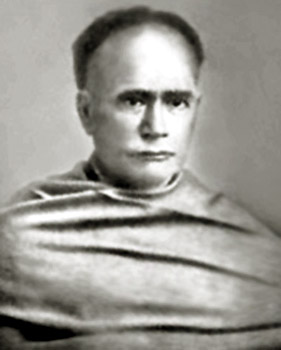 Women`s reforms in British India were the outcome of the commendable role played by various reformers who took up the cause of women`s oppression with passion. They did a commendable of job of taking up the cause of women`s freedom from traditional modes of bondage. Indian society at the time was a completely oppressive one as far as women were concerned. There were myriad issues faced by Indian women for centuries and they served to keep the women in a submissive role. Various outdated and harmful practices such as child marriage, Sati, female infanticide, polygamy, lack of women`s education and many more such evils were rampant in society and required an urgent redressal. It was with an aim of resolving these various issues that the campaign for reforms was undertaken. The various issues that were sought to be reformed covered the entire gamut of social evils that women were subject to. Issues like child marriage as well as raising the marriageable age of women, widow remarriage, women`s education and Sati were some of the burning issues that were taken up at the time. A major surge in reform activities came about with the coming of the British in India as they were able to provide a boost to the works of the Indian reformers who were championing women`s cause.
Women`s reforms in British India were the outcome of the commendable role played by various reformers who took up the cause of women`s oppression with passion. They did a commendable of job of taking up the cause of women`s freedom from traditional modes of bondage. Indian society at the time was a completely oppressive one as far as women were concerned. There were myriad issues faced by Indian women for centuries and they served to keep the women in a submissive role. Various outdated and harmful practices such as child marriage, Sati, female infanticide, polygamy, lack of women`s education and many more such evils were rampant in society and required an urgent redressal. It was with an aim of resolving these various issues that the campaign for reforms was undertaken. The various issues that were sought to be reformed covered the entire gamut of social evils that women were subject to. Issues like child marriage as well as raising the marriageable age of women, widow remarriage, women`s education and Sati were some of the burning issues that were taken up at the time. A major surge in reform activities came about with the coming of the British in India as they were able to provide a boost to the works of the Indian reformers who were championing women`s cause.
Across India, there is a long list of reformers who undertook major efforts on women`s behalf. Reformers were found throughout India and among all communities. They addressed a number of issues, most of them relating to marriage and the importance of female education. What is especially interesting about these nineteenth-century reformers is their activism.
In Bengal, Ishwar Chandra Vidyasagar championed female education and led the campaign to legalize widow remarriage, and Keshab Chandra Sen, a leader of the Brahmo Samaj, sought to bring women into new roles through schools, prayer meetings, and experiments in living. By the turn of the century, Swami Vivekananda, the leader of an activist order of Hindu monasticism, was arguing that women could become a powerful regenerative force. In North India, Swami Dayanand Saraswati, the founder of the Arya Samaj, encouraged female education and condemned customs he regarded as degrading to women. These included marriages between partners of unequal ages, dowry, and polygamy. At the same time, Rai Salig Ram (also known as Huzur Maharaj), a follower of the Radhasoami faith, advocated female emancipation in his volumes of prose, `Prem Patra`.
Among the Muslim social reformers, mention must be made of Khwaja Altaf Husain Hali and Shaikh Muhammad Abdullah who introduced education for girls. In western India, Mahadev Govind Ranade founded the National Social Conference to focus attention on social reforms. At the same time, the Parsee journalist Behramji Malabari captured the attention of the British reading public with his articles in `The Times` on the evils of child marriage and the tragedy of enforced widowhood for young women. Dhondo Keshav Karve offered a practical solution with his institutions in Pune to educate young widows to become teachers in girls` schools. In South India, R. Venkata Ratnam Naidu opposed the Devadasi system while Virasalingam Pantulu worked for marriage reform. Both sought to increase opportunities for female education.
Thus mentioned were some of the major social reformers in different parts of India who played a rather important role in bringing about awareness regarding the disparaging condition of women in society. It was this increased awareness and constant campaign for social change which ultimately led to a change in women`s position in India. The social reformers` ideas on gender were rooted in personal experience, and during their lives they attempted to change those with whom they lived and worked. They were not simply reacting to British pressure - these issues were very real and they responded to them with passion.



















